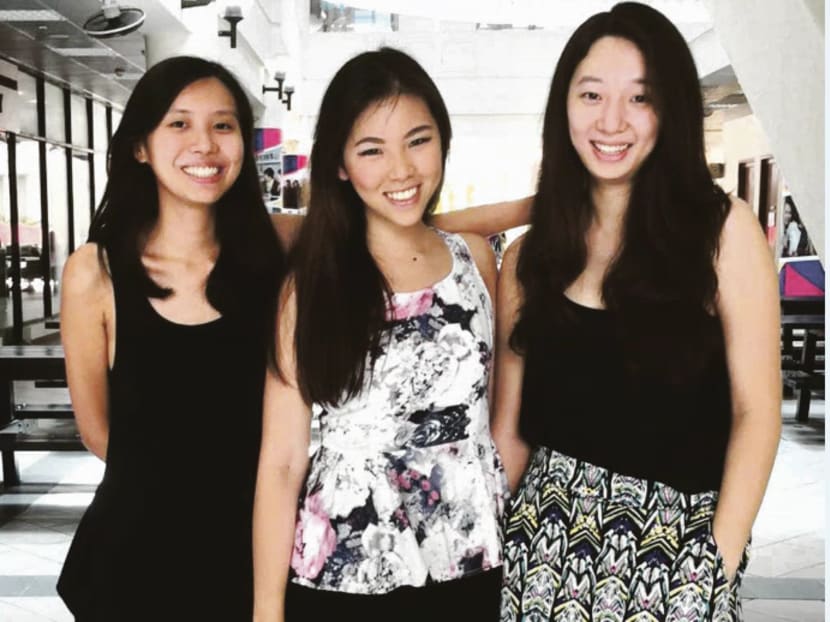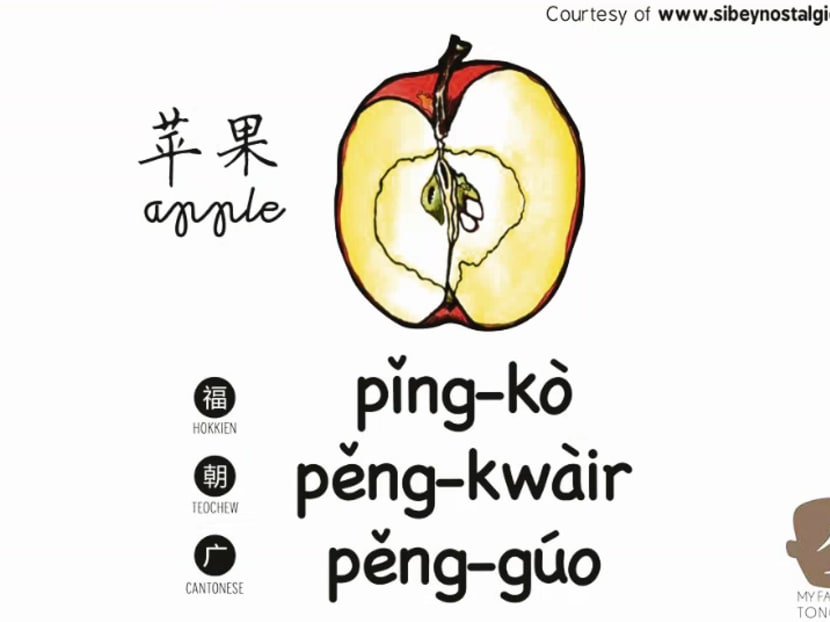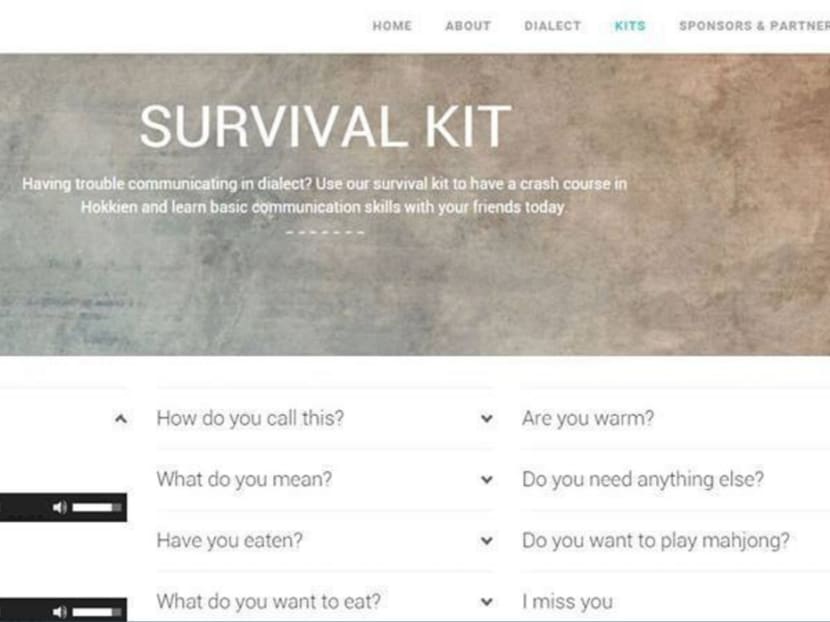How about learning some dialect to bond with grandma?
SINGAPORE — When author and blogger Grace Tan first met her boyfriend’s grandmother, she found herself tongue-tied. It’s not because the 29-year-old is shy; it’s because she couldn’t chat with the 85-year-old as the latter speaks only Teochew. “It was ridiculously difficult to communicate with her as she doesn’t speak Mandarin. So while she understands while I’m trying to say in Mandarin, she can’t respond to me at all,” said Tan.




SINGAPORE — When author and blogger Grace Tan first met her boyfriend’s grandmother, she found herself tongue-tied. It’s not because the 29-year-old is shy; it’s because she couldn’t chat with the 85-year-old as the latter speaks only Teochew. “It was ridiculously difficult to communicate with her as she doesn’t speak Mandarin. So while she understands while I’m trying to say in Mandarin, she can’t respond to me at all,” said Tan.
But these days, Tan is able to use some conversational Teochew greetings such as “How are you feeling?” and “What would you like to eat?” thanks to the Teochew classes she attended at a community centre. Her efforts have been reciprocated by the older lady who would laugh and correct her pronunciation. Naturally, they’ve gotten closer.
Tan’s Teochew class was organised by a student initiative My Father Tongue, set up by Fiona Seah, Melissa Goh and Cherie Lim from Nanyang Technological University’s Wee Kim Wee School of Communication and Information as part of their final year project. These free Hokkien, Teochew and Cantonese classes are held in community centres around Singapore in partnership with Viriya Community Services, which provides the teachers and learning materials.
The classes which started in February have seen an “unexpectedly overwhelming response with every class filled to maximum capacity”, according to the organisers. Most of the attendees are Singaporean Chinese between the ages of 18 and 35, with a handful of Indians and Malays participating as well as non-Singaporeans such as Malaysians and Chinese. “We are very encouraged by their interest in this cause. We have even received requests from private organisations and institutions to hold dialect classes,” said Seah.
The Singapore Hokkien Huay Kuan Cultural Academy is also seeing more young people coming for its classes. “Previously, we only held ad hoc classes but ever since we holding dialect classes more regularly (almost every quarter) last year, we’ve seen more people coming,” said Jeremiah Soh, marketing executive of The Singapore Hokkien Huay Kuan Cultural Academy. “The classes now have about 15 students and half of them are aged from 13 to 25 years old who say they want to learn dialects to communicate with their grandparents. We also went to Hwa Chong Institute last month to conduct lessons too as the students wanted to learn how to communicate with the elderly.”
For My Father’s Tongue, addressing such a generation gap was the main factor in starting the dialect movement. The founders revealed they were dismayed to read about a growing disconnect between people their age and the elderly due to a communication breakdown. “The inability to communicate or understand our dialect-speaking grandparents does affect our relationship with them. Although it’s true that many of our grandparents can speak a little Mandarin or English, they are definitely more comfortable speaking dialects as they are able express themselves better speaking the language they grew up with,” elaborated Seah. “On the other hand, they would feel appreciated and included when people, especially family members, attempt to speak to them in their dialect.”
To attract youngsters, My Father Tongue is active on social media and has populated their website and Facebook page with eye-catching and cheeky posters as well as plenty of food-related materials. It tied up with author Koh Guan Eng, who’s behind Sibey Nostalgic - a series of picture books illustrating simple words such as apple and housefly in dialects ranging from Hokkien to Hakka - to show some of his works online. There are even starter learning kits on My Father’s Tongue website that teach you how to say common phrases in Hokkien, Teochew and Cantonese. An outreach exhibition was held at Chinatown Heritage Centre in January and there are plans to donate some of these exhibition materials to schools as well as to create a PDF version of them for downloading so more young Singaporeans will be able to discover more about dialects.
My Father Tongue hopes occasions like Mother’s Day can be a chance for young Singaporeans to show their appreciation to grandmothers and grandfathers alike by communicating with them in dialect. Added Seah: “It doesn’t matter if you don’t get the words right — give them a good laugh at your mistakes and it’s one way to break the ice. Allow them teach you the proper way of saying them.”
Fun, easy ways to learn some dialect to bond with grandma
My Father Tongue’s next dialect class will be held in June at Bukit Gombak Community Centre. More details can be found on its Facebook page (https://www.facebook.com/myfathertongue). Also check out its website (http://www.myfathertongue.sg) for its dialect kits. Viriya Community Services also holds dialect classes. For more information, call 6293 4339 or email to mcm [at] viriya.org.sg. Visit http://www.viriya.org.sg for more information. A new series of Hokkien lessons at the Singapore Hokkien Huay Kuan Cultural Academy starts May 27. For more info, call 65 6222 8212 or log on to http://www.shhk.com.sg.
One quirky way is use the Sibey Nostalgic dialect picture books. Priced at S$24.90, they are available for purchase on its website(http://www.sibeynostalgic.com) and in stores such as Books Actually and Naiise.








